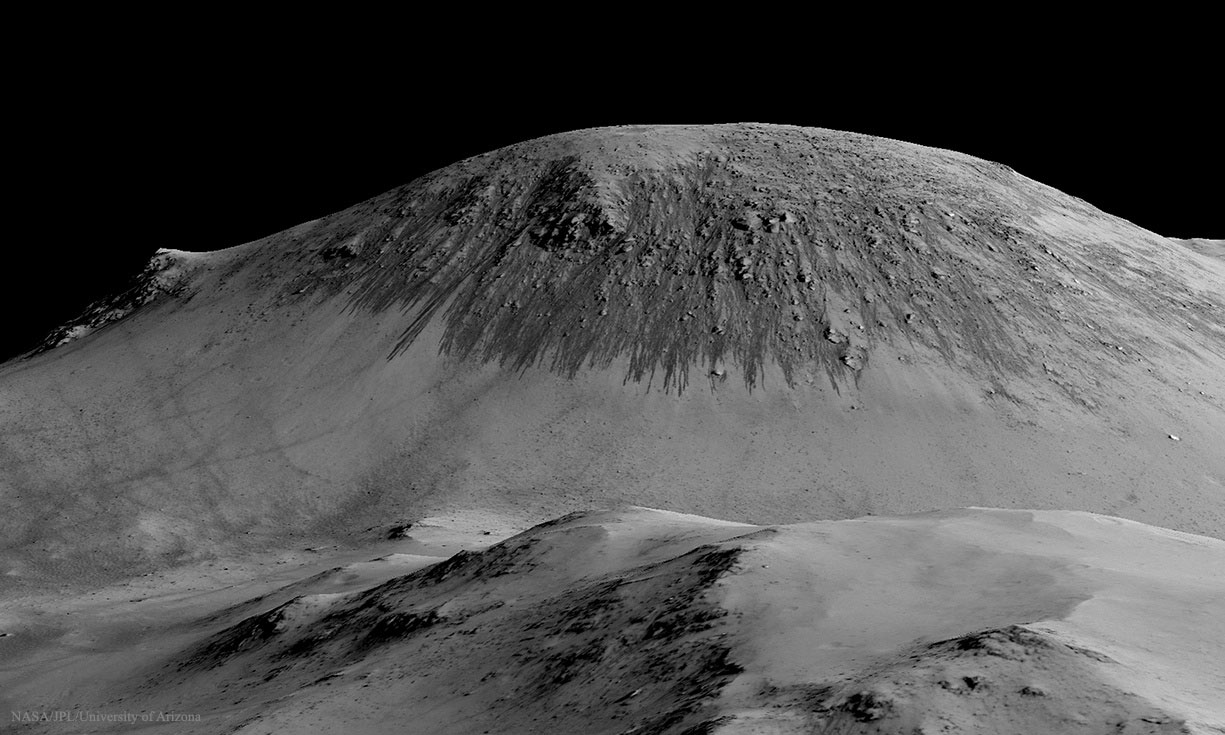
Copyright:
原文:
What creates these changing streaks on Mars? Called Recurring Slope Linea (RSL), these dark features start on the slopes of hills and craters but don’t usually extend to the bottom. What’s even more unusual is that these streaks appear to change with the season, appearing fresh and growing during warm weather and disappearing during the winter. After much study, including a recent chemical analyses, a leading hypothesis has emerged that these streaks are likely created by new occurrences of liquid salty water that evaporates as it flows. The source for the briny water is still unclear, with two possibilities being condensation from the Martian atmosphere and underground reservoirs. An exciting inference is that if these briny flows are not too salty, they may be able to support microbial life on Mars even today. The featured image of a hill inside Horowitz Crater was investigated by instruments aboard the robotic Mars Reconnaissance Orbiter that has been returning data from Mars since 2006. Retrospective: Today in APOD History
中文翻譯:
在火星上,反覆坡度線(Recurring Slope Lineae, RSL)的神秘變化引起了廣泛的關注。這些黑暗的特徵通常出現於山坡及隕石坑的斜坡上,但不會延伸至底部。更奇特的是,這些條紋隨著季節變化而變化,隨著暖季來臨而出現、更長,而在冬季則消失。經過大量研究以及最近的化學分析,一個主要假說浮出水面:這些條紋可能是由新的液態鹽水流造成的,這些水在流動過程中蒸發。至於鹽水的來源,仍不明朗,可能是來自火星大氣中的凝結水或地下水庫。令人興奮的推論是,如果這些鹽水的濃度不是太高,它們或許能夠支持即使在今天的火星上也能存在的微生物生命。這張顯示霍洛維茲隕石坑內部山丘的圖片,資料是由自2006年以來不斷從火星回傳數據的機器人探測器火星勘測軌道器(Mars Reconnaissance Orbiter)所獲得。
#火星 #反覆坡度線 #RSL #火星探索 #微生物生命 #太空科學 #Mars #RecurringSlopeLineae #SpaceExploration #Astrobiology #MarsReconnaissanceOrbiter #HorowitzCrater #火星科學 #地外生命
來源:NASA每日圖片


